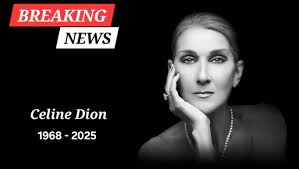Trump has said he would fire Smith once he retook the office, shattering previous norms around special counsel investigations.
“The (Justice) Department’s position is that the Constitution requires that this case be dismissed before the defendant is inaugurated,” Smith wrote of the election subversion case in a six-page filing with US District Court Judge Tanya Chutkan in Washington, DC. “This outcome is not based on the merits or strength of the case against the defendant.”
Chutkan formally dismissed the case without prejudice Monday afternoon.
Smith’s criminal pursuit of Trump over the last two years for trying to subvert the 2020 presidential election and his mishandling of classified documents represented a unique chapter in American history: Never before has a former occupant of the White House faced federal criminal charges.
Though the election subversion case culminated this summer in a landmark Supreme Court ruling that said Trump enjoyed some presidential immunity from criminal prosecution, Trump’s strategy of delay in the case ensured that a trial never got underway before the November election.
In the election case Trump faced in Washington, DC, Smith charged the former president over his efforts to overturn his 2020 election loss, a plot that culminated in the January 6, 2021, Capitol attack.
“The Government’s position on the merits of the defendant’s prosecution has not changed,” Smith said in the filing.
Chutkan had been deciding how much of Trump’s conduct at the center of the case was shielded by immunity after prosecutors last month laid out their arguments for why the Supreme Court’s ruling should have no impact on the case. After Trump won reelection this month, prosecutors asked Chutkan to pause a series of postelection deadlines in the case as they weighed their next steps.
In the documents case brought in Florida, Trump was indicted for allegedly taking classified national defense documents from the White House after he left office and resisting the government’s attempts to retrieve the materials.
Trump has pleaded not guilty to all charges in both cases.
Trump spokesperson Steven Cheung in a statement called the move “a major victory for the rule of law.”
“The American People and President Trump want an immediate end to the political weaponization of our justice system and we look forward to uniting our country,” Cheung added.
Trump employees still face appeal
Smith, in a filing with a federal appeals court, said that prosecutors were keeping their case on mishandling classified documents alive against two of Trump’s employees.
The case is before the 11th US Circuit Court of Appeals, which is reviewing Judge Aileen Cannon’s order dismissing all charges.
The co-defendants are Walt Nauta and Carlos de Oliveira, who work for Trump and are accused of helping the former president obstruct a federal investigation into sensitive government documents taken from his first administration. Both have pleaded not guilty.
“The special counsel’s decision to proceed in this case, even after dismissing it against President Trump, is an unsurprising tribute to the poor judgment that led to the indictment against Mr. De Oliveira in the first place,” John Irving, a defense attorney for De Oliveira, said. “Just because you can, doesn’t mean you should. If they prefer a slow acquittal, that’s fine with us.”
A lawyer for Nauta, Stanley Woodward, didn’t immediately respond to a request for comment.
Dismissing without prejudice
Smith said he was seeking to drop the charges against the president-elect “without prejudice,” which would keep the door open for charges to be brought again in the future, calling the presidential immunity Trump will have as “temporary.”
Smith said he consulted with Justice Department lawyers on the question and that they also weighed the possibility of pausing the case until Trump no longer had the immunity of the presidency protecting him.
Ultimately, however, the department’s Office of Legal Counsel concluded that the bar on prosecuting sitting presidents is “categorial,” including for indictments handed up before a defendant enters office.
“Accordingly, the Department’s position is that the Constitution requires that this case be dismissed before the defendant is inaugurated. And although the Constitution requires dismissal in this context, consistent with the temporary nature of the immunity afforded a sitting President, it does not require dismissal with prejudice,” Smith wrote.
In her ruling on Monday, Chutkan noted the unusual circumstances.
“Dismissal without prejudice is also consistent with the Government’s understanding that the immunity afforded to a sitting President is temporary, expiring when they leave office,” the judge wrote.
State cases will continue against Trump
As president, Trump will not have the power to interfere with the prosecutions brought against him by state authorities in Georgia and New York. However, the courts in those cases will still have to work out immunity questions and issues raised by his return to the White House.
Last week, the judge overseeing Trump’s criminal hush money case in New York postponed his sentencing indefinitely. A jury in the state convicted Trump earlier this year on 34 counts of falsifying business records to cover up a hush money payment made during the 2016 campaign to adult-film star Stormy Daniels, who alleged a prior affair with the president-elect. (Trump denies the affair.)
And Trump is still working to stave off prosecution in Georgia, where he is a defendant in a sprawling case that accuses him and several allies of trying to overturn his 2020 election loss in the Peach State.
This story has been updated with additional information.





